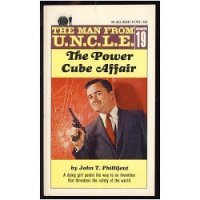Power of the Sword - Smith Wilbur (читать книги онлайн регистрации .TXT) 📗
The conflict swung against the Axis powers. The United States of America had entered the war and Flying Fortresses were bombing the cities of Germany. Manfred read of the terrible conflagration that had destroyed Cologne and he wrote again to Heidi for perhaps the hundredth time since he had arrived in Portugal.
Three weeks later, on one of his regular calls at the German consulate, the military attache handed him an envelope and with a surge of joy he recognized Heidi's handwriting upon it. It told him that she had received none of his previous letters and had come to believe that he was dead. She expressed her wonder and thankfulness at his survival and sent him a snapshot of herself and little Lothar. In the photograph he saw that she had put on a little weight, but in a stately manner she was even more handsome than when last he had seen her, and in a little over three years his son had grown into a sturdy youngster with a head of blond curls and features that showed promise of strength as well as beauty. The photograph was black and white and did not show the colour of his eyes. Manfred's longing for them both threatened to consume him. He wrote Heidi a long passionate letter explaining his circumstances and urging her to make all possible efforts to procure a travel pass and to join him with the child in Lisbon. Without being specific, he was able to let her know that he was financially able to
take care of them, and that he had plans for a future that included them both.
Heidi De La Rey lay awake and listened to the bombers.
They had come on three successive nights. The centre of the city was devastated, the opera house and the railway station totally destroyed, and from the information which she had access to in the Department of Propaganda, she knew of the Allied successes in France and Russia, she knew the truth of the hundred thousand German troops captured by the Russians at Minsk.
Beside her Colonel Sigmund Boldt slept restlessly, rolling over and grunting so she was even more disturbed by him than by the distant American bombers. He had reason to worry, she thought. All of them were worried since the abortive attempt to assassinate the Fuhrer. She had seen the films of the execution of the traitors, every minute detail of their agony as they hung on the meat hooks, and General Zoller had been one of them.
Sigmund Boldt had not been one of the conspirators, she was certain of that, but he was close enough to the plot to be caught up in the tidal wave that flowed from it. Heidi had been his mistress for almost a year now, but she had begun to notice the first signs of his waning interest in her, and she knew that his days of influence and power were numbered. Soon she would be alone again, without special food rations for herself and little Lothar.
She listened to the bombers. The raid was over, and the sound of their motors dwindled away to a mosquito hum, but they would be back. In the silence after their departure, she thought about Manfred and the letters he had written to which she had never replied. He was in Lisbon, and in Portugal there were no bombers.
She spoke to Sigmund the next day at breakfast. It is only little Lothar I am thinking of, she explained, and she thought she saw a glimmer of relief in his expression. Perhaps he had already been calculating how he could be rid of her without a fuss. That afternoon she wrote to Manfred, care of the German consulate in Lisbon, and she enclosed a photograph of herself and Lothar.
Colonel Sigmund Boldt moved quickly. He still had influence and power in the department sufficient for him to procure her travel pass and documents within a week, and he drove her out to Tempelhof airport in the black Mercedes and kissed her goodbye at the foot of the boarding ladder of the Junkers transport aircraft.
Three days later Sigmund Boldt was arrested in his home at Granewald and a week later he died under interrogation in his cell at the Gestapo headquarters, still protesting his innocence.
Little Lothar De La Rey caught his first glimpse of Africa peering between the rails of the Portuguese freighter as it steamed into Table Bay. He stood between his father and mother, holding their hands and chuckling with delight at the steam tugs that came bustling out to welcome their ship.
The war had ended two years ago, but Manfred had taken extraordinary precautions before bringing his family to Africa. First he had written to Uncle Tromp who had been released from internment at the end of the war, and from him learned all the family and political news. Aunt Trudi was well and both the girls were married now. Roelf had been released at the same time as Uncle Tromp and had returned to his job at the university. He and Sarah were happy and well and expecting another addition to their family before the year's end.
Politically the news was promising. Although the Ossewa Brandwag and the other paramilitary organizations had been discredited and disbanded, their members had been absorbed into the National Party under Dr Daniel Malan, and the Party was rejuvenated and strengthened by their numbers. Afrikaner unity had never been more solid, and the dedication of the massive Voortrekker monument on a kopje above Pretoria had rallied the Volk so that even many of those who had joined Smuts army and fought in North Africa and Italy were flocking to the cause.
A backlash was developing against Smuts and his United Party. The feeling was that he placed the interests of the British Commonwealth, which he had done so much to bring into being, before the interests of South Africa.
Furthermore, Smuts had made a political misjudgement by inviting the British Royal Family to visit the country, and their presence had served to polarize public feelings between the English-speaking jingoists and the Afrikaners.
Even many of those who had been Smuts men were offended by the visit.
Doctor Hendrik Frensch Verwoerd who had left his teaching post at Stellenbosch University to become editor of Die Vaderland allowed only one reference to the royal visit in his newspaper. He warned his readers that there might be some disruption of traffic in Johannesburg owing to the presence of foreign visitors in the city.
On the occasion of the loyal address at the opening of the South African Parliament, Dr Daniel Malan and all his Nationalist members had absented themselves from the House in protest.
Uncle Tromp ended his letter, So we have come through the storm strengthened and purified as a Volk, and more determined than ever in our endeavours. There are great days ahead, Manie. Come home. We need men like you. Still Manfred did not move immediately. First he wrote to Uncle Tromp again. In veiled terms he asked what the position was with regard to a white sword he had left behind, and after a delay he received assurance that nobody knew anything about his sword. Discreet enquiries through friends in the police force had elicited the information that although the dossier on the missing sword was still open, it was no longer under active investigation and nobody knew its whereabouts or to whom it belonged. It must be assumed that it would never be found.
Leaving Heidi and the boy in Lisbon, Manfred travelled by train to Zihich where he sold the remainder of the diamonds. In the post-war euphoria prices were high, and he was able to deposit almost 1,200,000 in a numbered account with Credit Suisse.
When they reached Cape Town the family went ashore without attracting attention, although as an Olympic gold medallist Manfred could have found himself the centre of a great deal of publicity if he had wished. Quietly he felt his way, visiting old friends, former OB members and political allies, making certain that there were no nasty surprises in store for him before he gave his first interview to the Burger newspaper. To them he explained how he had passed the war in neutral Portugal because he had declined to fight for either side, but now he had returned to the land of his birth to make whatever contribution he could to political progress towards what was every Afrikaner's dream, a Republic of South Africa, free from the dictates of any foreign power.




